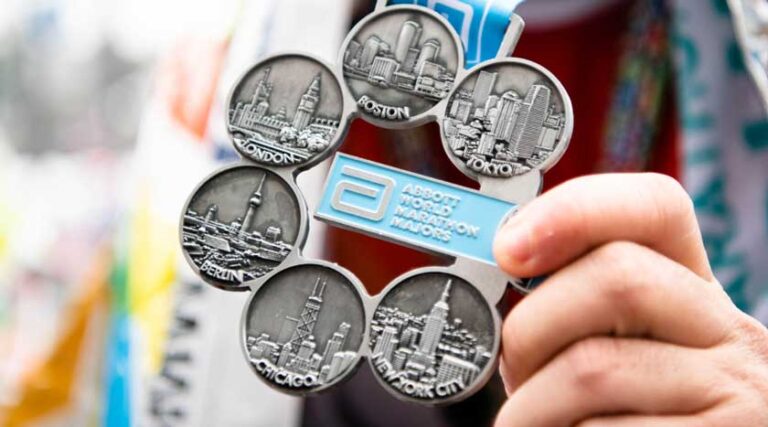Preparing for a marathon isn’t just a matter of telling yourself you’re going to run 42.195 km. It’s a project that requires discipline, progressiveness and a good dose of patience. Whether you’re preparing for your first marathon or aiming to beat your personal best, here are the basics of a good preparation plan and all the essential tips for arriving ready on D-day.
When should you start preparing?
A marathon training plan generally begins 12 to 16 weeks before the race, i.e. 3 to 4 months. This timeframe allows you to: build up a good endurance base, progress without rushing, and incorporate rest phases to avoid injury. If you’re starting from scratch, it’s advisable to do some preliminary fitness work several months before this specific block.
What type of plan should I follow?
There is no single universal plan, but several types of preparation depending on your experience:
Beginner (goal: finish)
3 sessions per week Objective: develop endurance Emphasis on long, progressive outings (up to 2h30-2h45) Few or no splits Comfortable pace sessions
Intermediate (target: time > 4h)
3 to 4 sessions/week Integration of marathon pace sessions Work on endurance and threshold Long outings up to 30-32 km
Confirmed (objective: chrono)
4 to 5 sessions/week Specific training: short and long splits, long outings at target pace Integrated muscle strengthening Importance of tapering to arrive fresh There are many free online plans to suit your goal (e.g. 4h, 3h30, 3h). You can also use platforms such as Strava, Garmin, RunMotion Coach, or programs from specialist magazines (Jogging International, Runner’s World…).
Our key tips for successful preparation:
1. Vary your sessions
- Fundamental endurance: the basis of everything. Comfortable pace (70-75% of your maximum heart rate).
- Long outings: once a week, up to 30-32 km max.
- Fractional training to progress and improve your stride.
- Muscle strengthening: sheathing, squats, lunges, 1 to 2 times/week.
2. Test your supply
- Leave nothing to chance: gels, drinks, bars… test everything in training.
- Practice regular sugar intake from the 45th minute of the race.
- Adopt a clear nutritional strategy to avoid slumps. Don’t change your diet just before the marathon.
3. Take care of your recovery
- Include 1 or 2 days of rest each week.
- Alternate heavy and light weeks.
- Pay attention to your sleep, hydration and diet.
4. Make a real schedule
- Gradual volume reduction 2 to 3 weeks before the race.
- Keep the intensity, but reduce the duration.
- Objective: arrive fresh and motivated at the starting line.
5. Prepare yourself mentally
- Visualize the race, the difficult moments, the finish.
- Be prepared to run with your head as well as your legs.
And during the trip? When you choose Planet Tours, you concentrate solely on your race. We take care of your race number, your accommodation close to the start line or transport, transfers from Paris if necessary, and on-site assistance.
But when it comes to sport, you’re the only one who can control your own preparation. That’s why we recommend that you follow a structured plan, listen to your body, and train regularly without rushing.
Running an international marathon like Berlin, Chicago, the Medoc or Paris is a dream that can be achieved with serious preparation. Even without a personalized plan, you can organize yourself efficiently by following these tips.
With Planet Tours, you benefit from an organized running trip, so you can concentrate 100% on your challenge. All you have to do is choose your destination and start training!






